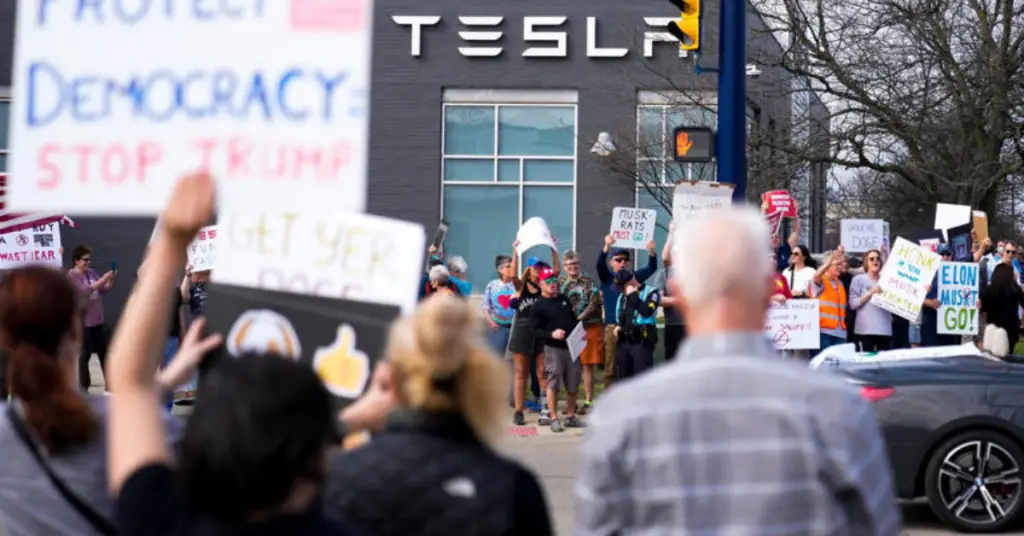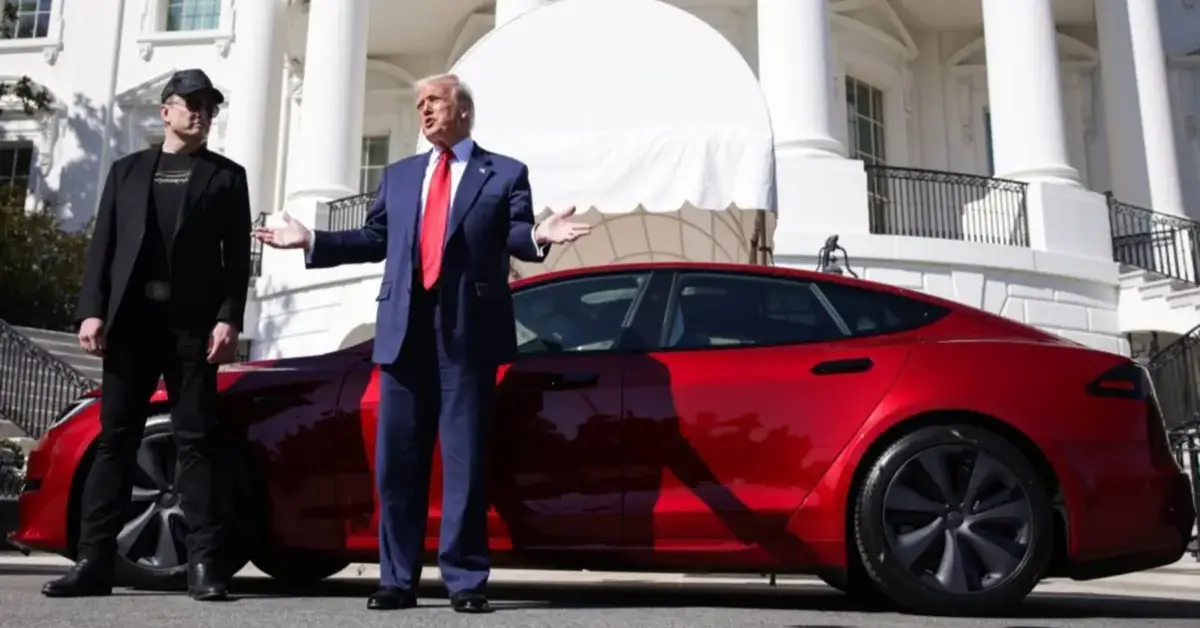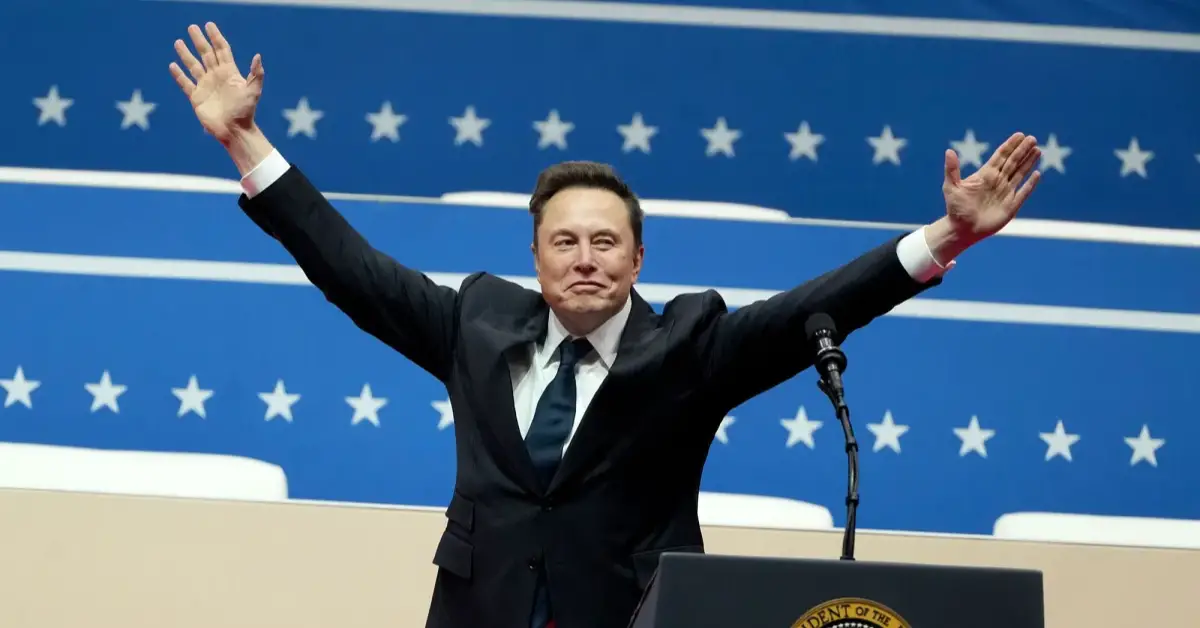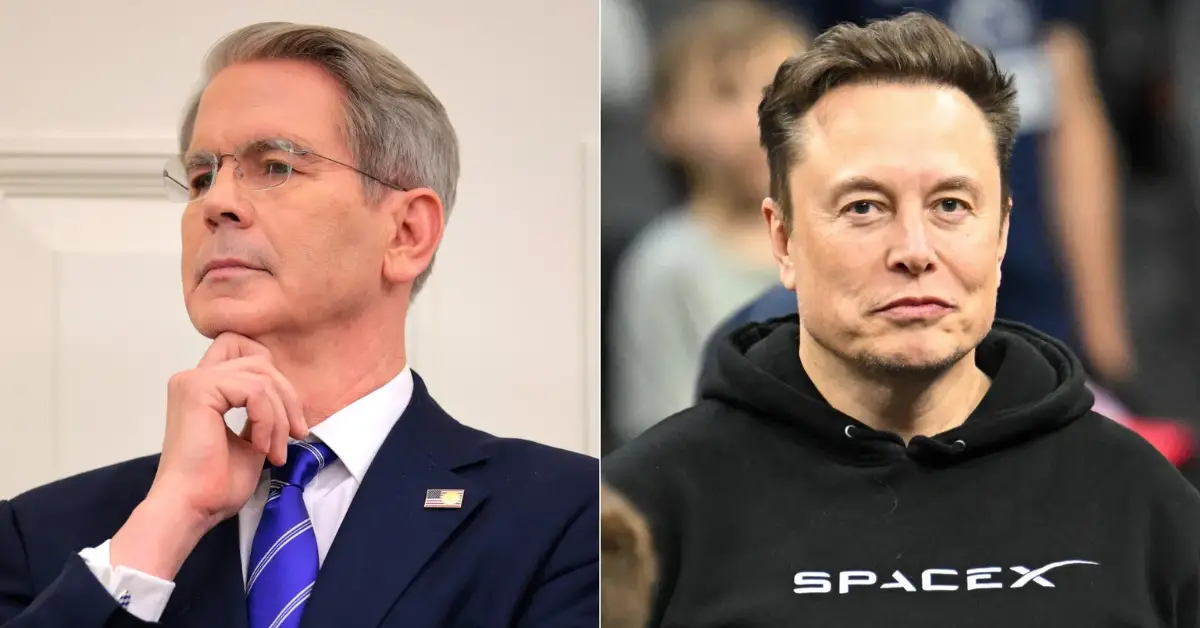Well, America, I hope you’re happy. Tesla, the electric vehicle company founded by Elon Musk, saw its profits plummet by a staggering 71% in the first quarter of the year. And now, the billionaire, who has been busy meddling in U.S. government affairs, is upset. Guess what? According to Musk, this downturn in Tesla’s fortunes is all your fault, because you don’t like him.
On an April 22 call with investors, Musk sounded far from his usual confident self. The conversation was supposed to focus on Tesla’s business, but instead, it took an unexpected turn as Musk spoke about his current obsession: dismantling government agencies.
Under the label of the “Department of Government Efficiency” (DOGE), Musk explained how his team had been working hard to eliminate waste and fraud in government spending. Yet, even though the evidence suggests otherwise, Musk defended the effort, claiming that natural blowback from those who benefited from these supposed wasteful practices was the real problem.
“The DOGE team has made a lot of progress in addressing waste and fraud,” Musk said, despite clear signs that this claim was far from the truth. “But natural blowback from that is those who were receiving the wasteful dollars and the fraudulent dollars will try to attack me and the DOGE team and anything associated with me.” So, according to Musk, if you’re one of those people who has been on the receiving end of government funds, you’re responsible for his problems—problems that have now hit Tesla hard.
For those unfamiliar, Musk has received at least $38 billion in government contracts, loans, subsidies, and tax credits over the years, which have significantly contributed to the success of his ventures, including Tesla. This financial support has been instrumental in Musk’s rise to the top of the world’s wealth rankings.
However, instead of acknowledging the role these government funds played in his success, Musk has consistently framed himself as a martyr, claiming that he is now being attacked for trying to root out waste in government spending. The message he’s sending is clear: he’s the hero, and all of his problems are due to people being upset at him for taking on the system that helped him build his empire.
And what’s the reason people are upset, according to Musk? It’s because they no longer want to buy his Teslas. He’s upset that people aren’t rushing to purchase his overpriced cars, and instead of taking a hard look at his product or business practices, he has decided that it must be something personal.
“Now the protests that you’ll see out there, they’re very organised. They’re paid for,” Musk said. “They’re obviously not going to admit that the reason they’re protesting is because they’re receiving fraudulent money or that they’re the recipients of wasteful largesse, but they’re gonna come up with some other reason.”
Here’s the problem with that: There’s absolutely no proof to back up Musk’s claims about “paid protesters” or that these protests are driven by anything other than genuine dissatisfaction with his actions. In fact, the idea of “paid protesters” is a right-wing conspiracy theory that has been widely debunked.
Musk’s argument about people protesting against him because they don’t want to lose their government handouts is a fantasy—one that distracts from the real issues at hand. The truth is, people don’t want to buy his cars because they don’t see value in them anymore, not because they’re part of some vast, coordinated effort against him.
Meanwhile, Tesla’s financials tell the real story. The company’s quarterly earnings report revealed that Tesla’s auto revenue dropped by 20%, making it clear that Musk’s flagship company is facing some serious challenges.
Tesla’s profits declined 71% year-over-year, a significant drop that further underscores the company’s ongoing challenges. Rather than turning his attention to fixing Tesla’s deteriorating brand, Musk seems to be more concerned with his political and ideological battles—battles that aren’t helping his company or its bottom line.

And this isn’t just a blip in the road for Tesla. It’s a sign of a deeper problem. Over the past few months, Tesla’s brand has suffered damage due to a series of missteps. Musk’s behaviour—both on social media and in the public eye—has had a toxic effect on the company’s image.
From mocking public servants to dismantling government agencies that were doing good work, Musk has alienated not only his customer base but also the general public. His comments about people with disabilities, his controversial stances on various social and political issues, and his general disdain for government workers have turned many people off to the Tesla brand.
It’s also worth noting that Musk’s management of the Twitter platform he purchased has made headlines for all the wrong reasons. What was once a powerful platform for public discourse has become a shadow of its former self under Musk’s leadership. The platform’s reputation has been tarnished by Musk’s decision-making, leaving many to question his judgment and the direction he’s taking Tesla.
Despite these significant challenges, Musk still appears to believe that he can revive the Tesla brand by focusing more on the car company and less on his political pursuits. He seems to believe that by spending less time in government and more time on his cars, he can turn things around.
But let’s be honest: Tesla’s problems run deeper than just the time Musk spends on other projects. The brand is suffering from a lack of consumer trust, declining product quality, and a disconnect between Musk’s public persona and the values many people associate with Tesla.
Musk has shown other billionaires a valuable lesson: no matter how rich or powerful you are, you can always find a way to make yourself more unpopular. By embracing far-right political beliefs, making disparaging comments, and running his businesses with a lack of consistency and accountability, Musk has demonstrated just how easily a brand can be destroyed.
As Tesla’s profits continue to tumble and the company’s reputation continues to sink, Musk remains stubborn in his belief that he can fix it all. But with every new misstep, he only digs the hole deeper. If Musk wants to save Tesla, he needs to stop pointing fingers at others and start taking responsibility for his actions. Until then, it’s hard to see how the company can come back from the mess it’s in.
Disclaimer: This article has been meticulously fact-checked by our team to ensure accuracy and uphold transparency. We strive to deliver trustworthy and dependable content to our readers.




